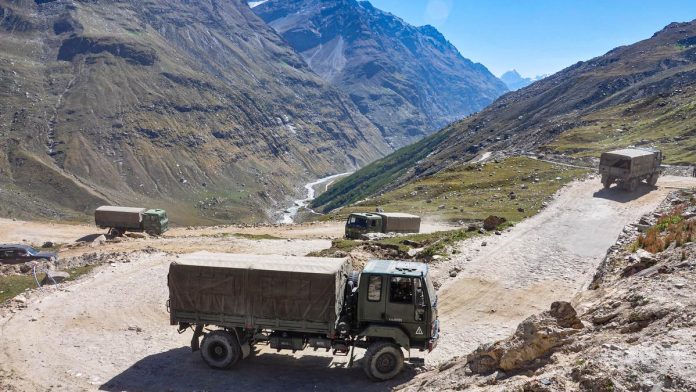Beijing, Dec 6: India and China agreed to take measures to further ease the situation at the borders while continuing to implement the October agreement to resolve the standoff in eastern Ladakh comprehensively, the Chinese Foreign Ministry said a day after talks in New Delhi.
China and India held the 32nd meeting of the Working Mechanism for Consultation and Coordination on China-India Border Affairs (WMCC) on Thursday (December 5, 2024) in New Delhi, and the two sides agreed to maintain communication through diplomatic and military channels, and safeguard sustainable peace and stability in the border areas.
Both sides positively assessed the solutions reached on border-related issues and agreed to continue implementing them comprehensively and effectively, while taking measures to further ease the border situation, a press release issued by the Ministry in Beijing on Friday (December 6, 2024).
This is the first meeting of WMCC after the October 21 agreement between the two countries to resolve the over four yearlong military standoff in eastern Ladakh that had brought the relations between the two countries to a standstill.
Following the important consensus reached by the leaders of both countries, the meeting focused on preparations for the next round of Special Representatives’ talks on the China-India border issue, it said.
The two sides also agreed to continue leveraging the role of the border negotiation mechanism, maintaining communication through diplomatic and military channels, and safeguarding sustainable peace and stability in the border areas, the release said.
The Ministry of External Affairs (MEA), in its press release on the talks on Thursday, said both sides reflected on the lessons learnt from the eastern Ladakh border row in order to prevent such face-offs in future.
Also at Thursday’s WMCC the two sides agreed to maintain peace and tranquillity in border areas in line with bilateral pacts and protocols.
The two sides also prepared for the next meeting of the Special Representatives on the boundary question.
“The two sides positively affirmed the implementation of the most recent disengagement agreement which completed the resolution of the issues that emerged in 2020,” the MEA release said.
The eastern Ladakh military standoff between India and China began in May 2020 and a deadly clash at the Galwan Valley in June that year resulted in a severe strain in ties between the two neighbours.
The face-off effectively ended following completion of the disengagement process from the last two friction points of Demchok and Depsang under an agreement finalised on October 21.
Two days after the pact was firmed up, Prime Minister Narendra Modi and Chinese President Xi Jinping held talks on the sidelines of the Brics Summit in the Russian city of Kazan.
In the meeting, the two sides agreed to revive several dialogue mechanisms including the Special Representatives dialogue on boundary questions.
India’s Special Representative for the dialogue is NSA Ajit Doval while the Chinese side is headed at the talks by Foreign Minister Wang Yi.
“They also prepared for the next meeting of the Special Representatives, which is to be held in accordance with the decision of the two leaders in their meeting in Kazan on October 23,” the MEA said on the WMCC talks.
It said “both sides reviewed the situation in border areas, and reflected on the lessons learnt from the events of 2020 in order to prevent their recurrence.”
“In this context, they highlighted the importance of regular exchanges and contacts at diplomatic and military level through established mechanisms.” “They agreed on the need for effective border management and maintenance of peace and tranquillity in accordance with relevant bilateral agreements, protocols and understandings reached between the two governments,” the MEA added.
The Indian delegation at the talks was led by Gourangalal Das, Joint Secretary (East Asia) in the MEA.
The Chinese team was headed by Hong Liang, Director General of the Boundary and Oceanic Affairs Department at the Chinese Foreign Ministry.
Hong also called on Foreign Secretary Vikram Misri. (Agencies)


